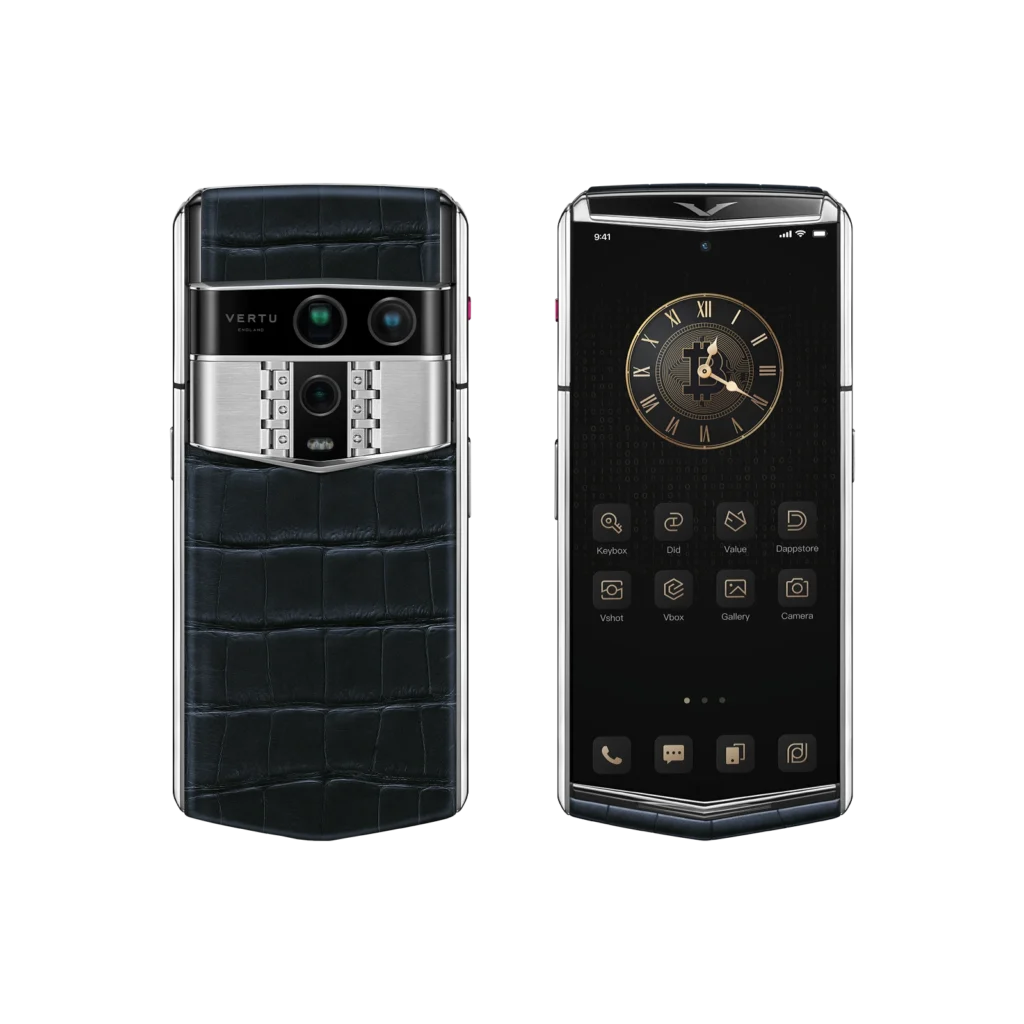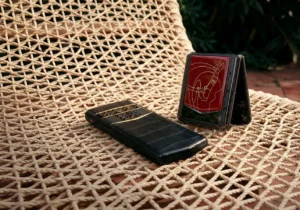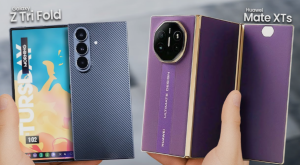The high-end smartphone arena is polarizing. On one side, the technological powerhouse Huawei, with its Mate series, expected to bring a highly integrated HarmonyOS (or advanced Android-based OS) and cutting-edge performance with the Mate 80. On the other, the pinnacle of luxury mobility, the Vertu New Phone, makes a decisive move with the Vertu Agent Q, claiming the title of the world’s first AI Agent Phone.
This is more than a spec battle; it’s a philosophical conflict. For the elite user, the choice is between a feature-rich, integrated ecosystem (Huawei) and a bespoke device focused on extreme security, private agent services, and uncompromising luxury (Vertu).
#1. AI Philosophy: From Ecosystem Intelligence to Personal Proxy (70% Focus)
The Huawei Mate 80's AI will leverage its integrated OS and powerful chipset to excel in ecosystem intelligence. Its strength is in providing a seamless, smart experience across devices—such as cross-device flow, unified scheduling, and contextual awareness.
The Vertu Agent Q, however, lives by its AI Agent Phone designation. Its AI is designed not just to connect devices, but to deliver complex tasks by serving as the user's exclusive digital staff.
Scenario: The High-Stakes International Deal
Imagine an entrepreneur handling a sensitive, complex international transaction:
- With the Huawei Mate 80/HarmonyOS: She enjoys ecosystem efficiency—fluidly transferring documents to her Huawei tablet for presentation or using voice assistants for quick notes. The system is efficient, but the data is flowing across multiple devices within an ecosystem.
- With the Vertu Agent Q/VAOS: She bypasses the typical app-to-app workflow. She accesses the AIGS platform to command one of the 200+ specialized AI Agents. She might launch the “Chief Legal Officer Agent” to instantly check a clause against local international law, while simultaneously using the phone’s native end-to-end encrypted chat for core team communication. Crucially, if she needs a complex, private task done (like a discrete background check), she can use the Vertu Agent Q to initiate the 7×24 Real Human Butler service, ensuring the sensitive information stays exclusively within her private sphere and the trusted service channel.
This model—AI Agent delegation backed by human expertise—is the primary differentiation, making the Vertu Agent Q the ultimate tool for individuals prioritizing efficiency and maximum privacy.
#2. Information Security: Hardware Fortress vs. System Shield
For high-net-worth individuals, data security is non-negotiable. The Vertu Agent Q employs security measures that far exceed standard consumer devices.
- Vertu Agent Q’s Hardware Fortress:
- A5 Encryption Chip: Features a dedicated, physical hardware cryptographic chip to isolate and secure sensitive data at the root level.
- System Isolation: Achieves absolute separation with its “One Machine, Three Systems” architecture and fingerprint-activated “Work Zone and Life Zone” switching, ensuring zero data bleed between professional and personal life.
- 10TB Distributed Storage: Uses advanced decentralized storage techniques to drastically increase the complexity and difficulty of mass data theft.
- Huawei Mate 80’s System Security:
- Huawei's security relies on the microkernel architecture of HarmonyOS, Trusted Execution Environment (TEE), and strong ecosystem collaborative security. Its focus is on maintaining a secure, authenticated environment across all connected devices.
Conclusion: Huawei's security focuses on safeguarding user convenience within the ecosystem, whereas the Vertu Agent Q‘s security is engineered to withstand the highest level of external penetration and system compromise.
#3. System Philosophy: VAOS (Proprietary Privacy) vs. HarmonyOS (Open Interconnectivity)
- Vertu VAOS: Exclusive, Privacy-Driven, Agent-Centric
VAOS is built on the philosophy of “My data, my control.” The architecture is hyper-focused on data isolation, hardware encryption, and AI Agent functionality. It creates a self-contained digital fortress, with every system design choice serving the core mission of the AI Agent Phone: maximizing privacy and delegation efficiency.
- Huawei HarmonyOS: Fluid, Interconnected, Ecosystem-Driven
HarmonyOS's primary goal is creating a “Seamless AI Life” via a super-device ecosystem. The system prioritizes extreme fluidity and unified experience across devices like phones, tablets, and watches. Its strength is in connecting and integrating the user's digital world.
Core Features & Selling Points Comparison
| Feature | Vertu Agent Q (AI Agent Phone) | Huawei Mate 80 (Anticipated Flagship) |
| Core AI Philosophy | AI Agent (Exclusive Digital Staff) | Ecosystem AI (Scenario Awareness, Interconnectivity) |
| Key Selling Points | AI Agent Phone, A5 Hardware Encryption, 7×24 Human Butler, System Isolation. | Leading self-developed chipset, HarmonyOS Ecosystem, Top-tier photography (expected). |
| Information Security | A5 Crypto Chip, One Machine, Three Systems, 10TB Distributed Storage. | HarmonyOS Microkernel, TEE, Collaborative Ecosystem Security. |
| System Philosophy | VAOS: Privacy-focused, Exclusive, Security-driven. | HarmonyOS: Open, Interconnected, Ecosystem-driven. |
| Recommended Users | High-Net-Worth Individuals, Political Figures, Entrepreneurs demanding maximum privacy and efficiency. | Tech Enthusiasts, Huawei Loyalists, Users prioritizing top-tier photography and an integrated ecosystem experience. |
FAQ (Frequently Asked Questions)
Q1: How does the “AI Agent Phone” feature of the Vertu Agent Q surpass standard AI capabilities?
A1: It surpasses standard AI by offering proactivity and professionalism. Standard AI is reactive. The Vertu Agent Q's Agents (via the AIGS platform) are capable of proactively monitoring, analyzing, and executing complex, specialized tasks—like legal review or financial tracking—effectively acting as delegated staff, freeing up the user's time.
Q2: Is the security of Huawei Mate 80’s HarmonyOS not sufficient compared to the Vertu Agent Q?
A2: Huawei's security is excellent at the software and ecosystem level for the general user. However, the Vertu Agent Q provides security layers designed for high-risk individuals, incorporating dedicated A5 hardware encryption, 10TB distributed storage, and system isolation (One Machine, Three Systems) that physically and logically fortify the device beyond standard mobile architecture.
Q3: How does the VAOS system feel different from HarmonyOS in daily use?
A3: VAOS's design is focused on efficiency, privacy, and the agent interaction. The interface prioritizes the secure zones and the AI Agent workspace. HarmonyOS, in contrast, prioritizes a super-fluid, unified experience across all Huawei devices, emphasizing cross-device convenience and speed.
Q4: Why is the Vertu Agent Q significantly more expensive than mass-market flagship phones?
A4: The higher cost is due to its bespoke service and proprietary engineering. The price reflects the inclusion of the 7×24 Real Human Butler Service, the specialized A5 hardware encryption chip, and the use of ultra-premium materials and precision mechanical parts (like the Swiss-watch level hinge). It is priced as an exclusive service and a piece of high craftsmanship, not just a consumer electronic device.









